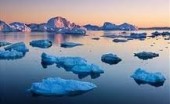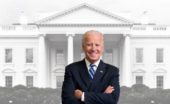Re Ian Bremmer 'Could third-party candidates upend the 2024 US election?' 3 April The current political movement in the USA…
Wednesday Night #1375
Written by Diana Thebaud Nicholson // July 9, 2008 // Chilion Heward, Wednesday Nights // Comments Off on Wednesday Night #1375
Chil Heward is bringing Robin Griffiths as his guest.
Robin joined Phillips & Drew in 1966, having taken a degree in Economics at Nottingham University. He went on to be a partner at WI Carr, the first British stock broker to have offices in Hong Kong and Tokyo. Part of this firm was acquired by Grieveson Grant, with whom Robin enjoyed a stay in Japan. In 1986 Robin joined James Capel, which was already owned by HSBC. He stayed
there until normal retirement age, and during that period travelled all over the world to meet their extended client base. Robin was based in New York for the last six years he was with the firm (now HSBC Securities) .
Upon leaving HSBC Investment Bank in 2002, he joined Rathbones as Head of Global Investment Strategy, where he remained until 2008. He is currently the Technical Strategist for Cazenove Capital and manages the Worldwide Absolute Return hedge fund.
Robin has been a regular on CNN, CNBC, Reuters and Bloomberg TV. He is a committee member and former chairman of the international Federation of Technical Analysts, and former chairman, now fellow, of the British Society of Technical Analysts.
Robin is the co-author of two books: The Money Tree: A method for making money in markets with Rashpal Sohan (2007) and Water The final resource: How the politics of water will affect the world with William Houston (2008)
A keen sailor, Robin has crossed the Atlantic five times, setting a new British record in 1984 with Sir Robin Knox-Johnston.
Topics for the evening are limitless, however the key issues of the G8 meeting in Toyako Hot Spring Village near Sapporo may serve as our guideline: the global economy (fuel, food & finance), climate change, development & Africa, Zimbabwe, North Korea and Iran.
A few notes:
July 9
An Abu Dhabi policy report makes the case for being rid of the Gulf peg to the dollar
The official position of the Gulf Co-operation Council (GCC) that the fixed peg to the US dollar will remain in place until monetary union is achieved has … suffered a further blow to its credibility with publication of a report by a department of the Abu Dhabi government suggesting that the time has come for a serious rethink of GCC monetary policy, including revaluation and a shift to a basket of international currencies as an exchange-rate reference point.
July 8 Dollar and stocks rally as Bernanke calms markets
Signs that investors still fear the impact of a lingering credit crunch could be seen in Europe, where stocks fell and euro zone government bonds advanced amid worries about further potential write-downs by banks.
The July 7 piece by Seymour Hersh in the New Yorker The Bush Administration steps up its secret moves against Iran should stir the pot at the G8 discussion of Iran.
Economy looms as key issue for G8 World leaders prepare to start a key summit in Japan expected to focus on soaring global food and fuel prices.
Food and energy prices push OECD inflation to its highest rate since 2001 This week the OECD announced that consumer prices for all items in its 30 member countries increased by 3.9% in May compared with a year earlier, the highest rate since 2001. Energy and food prices are the main contributors, rising by 14.6% and 6.1% respectively in May.
Sarkozy’s Union of the Mediterranean falters French effort to bind EU and Mediterranean countries meets wide resistance.
Buyers like China are bypassing commodities markets altogether and going right to the source
As the G8 and we ponder Africa and development, there is a wonderfully hopeful note struck by Nicholas Kristof (one of our favorite New York Times columnists) in his column The Luckiest Girl about one of the most remarkable of [this year’s] graduates, Beatrice Biira, [who] credits her academic success to — a goat. We defy you to read the remarkable story without being touched.
Finally, we ask you to ponder Bob Herbert’s recent column Cause for alarm” in which he suggests that in the United States symbols of patriotism have replaced the hard work and sacrifice required to keep a great nation great.



